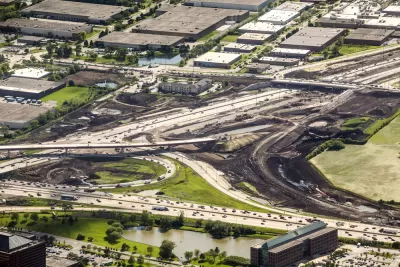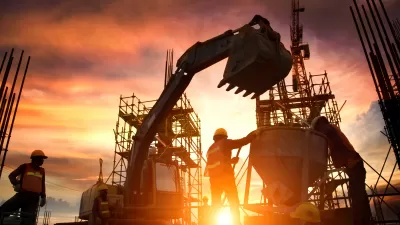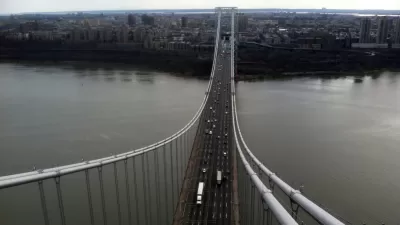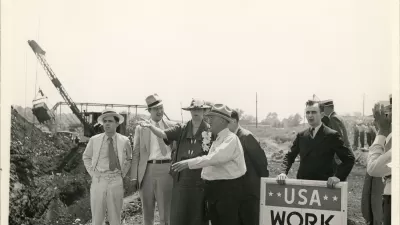As recessions fears grow, discussions about increasing the level of federal spending on infrastructure projects also grow.

The U.S. economy now appears headed for a recession, thanks to the S&P 500 dropping 20 percent from a recent high, so Jeff Davis writes about the potential of infrastructure spending as an economic stimulus.
According to Davis, “predictably, there are those in Congress who are calling for an increase in federal infrastructure spending as part of a response to this downturn in the business cycle.” WIth that political momentum in mind, Davis poses the following questions: “[I]s increased infrastructure spending the best way to counter a downturn in the business cycle that is caused by the confluence of a [sic] (a) a reduction in foreign trade; (b) a temporary collapse in demand for travel, hospitality, and public gatherings, and (c) a drastic drop of oil prices and its effect on the energy sector?”
To produce an answer, Davis investigates the 2009 American Recovery and Reinvestment Act, as well as highway stimulus spending from 1958, 1975, 1983, and 1991.
The answer is that the case for infrastructure spending in a recession is complicated. The slow pace of capital investments can make this approach ineffective as a response to short-term business cycles, but governments should do be spending on infrastructure anyway, for the potential long-term benefits.
FULL STORY: Looming Recession Sparks Familiar Calls for Infrastructure As Stimulus

Maui's Vacation Rental Debate Turns Ugly
Verbal attacks, misinformation campaigns and fistfights plague a high-stakes debate to convert thousands of vacation rentals into long-term housing.

Planetizen Federal Action Tracker
A weekly monitor of how Trump’s orders and actions are impacting planners and planning in America.

Chicago’s Ghost Rails
Just beneath the surface of the modern city lie the remnants of its expansive early 20th-century streetcar system.

Bend, Oregon Zoning Reforms Prioritize Small-Scale Housing
The city altered its zoning code to allow multi-family housing and eliminated parking mandates citywide.

Amtrak Cutting Jobs, Funding to High-Speed Rail
The agency plans to cut 10 percent of its workforce and has confirmed it will not fund new high-speed rail projects.

LA Denies Basic Services to Unhoused Residents
The city has repeatedly failed to respond to requests for trash pickup at encampment sites, and eliminated a program that provided mobile showers and toilets.
Urban Design for Planners 1: Software Tools
This six-course series explores essential urban design concepts using open source software and equips planners with the tools they need to participate fully in the urban design process.
Planning for Universal Design
Learn the tools for implementing Universal Design in planning regulations.
planning NEXT
Appalachian Highlands Housing Partners
Mpact (founded as Rail~Volution)
City of Camden Redevelopment Agency
City of Astoria
City of Portland
City of Laramie





























